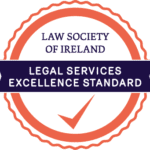Help I Am An Executor Of A Will What Happens Next?
The main person looking after an will/ estate of a deceased person is an Executor. Where there is a Will they are called an Executor, if there is no Will they are called an Administrator. The duties on them are the same.
The first duty of an Executor is to bury the dead and to gather the assets of the deceased. This sounds simple enough but there are a number of obligations on persons which they should know about and the time limits that are involved. They have to notify particular bodies or persons of the death of the deceased and to furnish information regarding the estate or entitlements to the estate.
The first thing an Executor should know is that they are given what is known as “An Executor’s year”. In plain English you have a year from the date of death of the deceased to get things orgainized and people entitled under the estate cannot put pressure or compel the distribution of an estate until after a year has past.
This means that by the time they gather details of assets, have letters written to various banks and ascertain property values time can pass. This protection is listed in Section 62 of the Succession Act 1965 .
The Executor will themselves be dealing with state bodies . The first one who requires some information and the estate’s assets is the Department of Social Community and Family Affairs. If the deceased was in receipt of any social welfare then an obligation arises for the details included in the Revenue Affidavit to be provided to them to see if there is any overpayment or any monies due back. If persons did not declare assets at the time of applying for a benefit the Department will see this when these assets are listed out on this Affadavit and they will make sure to have this paid back to them whatever is due.
Obviously with pension books on the death of a pensioner these books are immediately sent back and the pension ceases. It is unwise for any Executor to pay out any monies without having a clearance from the Department referred to above.
Nursing Home Support Scheme (Fair Deal)
This scheme has been in operation for a number of years now means the personal representative or Executor is obliged to notify the HSE not less than three months in advance of any intention to distribute any monies from the Estate. This applies where monies have been paid by the HSE for Fair Deal support. The scheme allows for a mortgage to be put on any property the deceased had. The notice to the HSE that the individual has died will trigger an application for the calculation of the amounts due on the property. It is now 7.5% of the property value for three years and that is usually a repayment from the sale of the asset due back to the HSE.
There is a duty on the Executor at all stages to notify and to ensure that this is carried out. The Executor would be personally liable if this is not transacted or if the estate is paid out without recourse to the HSE.
Two other areas where an Executor has a duty and has to be careful in relation to payout of funds from an estate.
The first of these is where non-resident beneficiaries are entitled to some funds. If there is a liability to CAT Tax then the Executor can find themselves liable.
They must hold back monies as are payable and paid to the Revenue before distributing the money to somebody abroad. Up to 2013 the situation where people in Ireland could not be receive their money until the tax was paid but that has changed and now it only relates to where people live abroad. The Executor must make sure the tax situation is in order or they could be liable.
The second area is in relation to any spouse or a civil partner divorced from a deceased person .The Executor must make reasonable effort to inform them of the death. If there are children of that relationship then that duty might not be as important .
In summary the Executor has a thankless job with some responsibilities and receives no payment for all of this .
Sometime it may be better to have a professional executor carry out the work to administer the estate.


